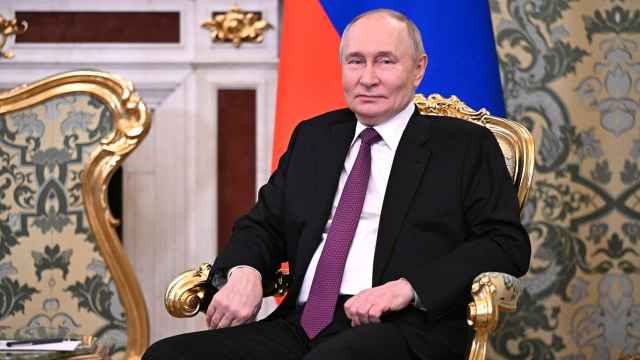The head of Russia's media watchdog has accused Twitter of a persistently failing to comply with Russian laws, after the micro blog said Moscow had submitted the world's second-largest number of requests to remove content in the second half of 2014.
Roskomnadzor chief Alexander Zharov took particular issue with the wording of Twitter's statement, which said the micro-blog had "denied several requests to silence popular critics of the Russian government and other demands to limit speech about non-violent demonstrations in Ukraine."
Twitter's stance "causes bewilderment," Zharov was cited as saying Tuesday by the state-run RIA Novosti news agency.
"The fact that this position was stated in a commentary to an official company report evidences Twitter's persistent failure to comply with the demands of Russian laws, including those aimed against extremism," he added.
The accusation of "extremism" has served as grounds for Moscow to block an array of Russian news websites, and Zharov's deputy at Roskomnadzor, Maxim Ksenzov, suggested last year that Moscow could also block Twitter.
Zharov stopped short of making that threat on Tuesday, saying only that Moscow would send another request to Twitter with demands for an explanation, Ekho Moskvy reported.
Twitter's transparency report, released Monday, showed that Russia filed 91 content removal requests between July and December last year — second only to Turkey. This marked a spike from the 33 content removal requests Russia filed in the first part of the year.
The increase was due to Russia's new law against extremism, which Moscow cited in its flurry of latest requests and which "allows Russian authorities to restrict access to content that is deemed to be 'extremist' or that leads to 'mass actions,'" Twitter said.
Twitter said it had complied with 59 percent of Russia's requests during the first part of the year, but only with 13 percent in the second half of the year.
A Message from The Moscow Times:
Dear readers,
We are facing unprecedented challenges. Russia's Prosecutor General's Office has designated The Moscow Times as an "undesirable" organization, criminalizing our work and putting our staff at risk of prosecution. This follows our earlier unjust labeling as a "foreign agent."
These actions are direct attempts to silence independent journalism in Russia. The authorities claim our work "discredits the decisions of the Russian leadership." We see things differently: we strive to provide accurate, unbiased reporting on Russia.
We, the journalists of The Moscow Times, refuse to be silenced. But to continue our work, we need your help.
Your support, no matter how small, makes a world of difference. If you can, please support us monthly starting from just $2. It's quick to set up, and every contribution makes a significant impact.
By supporting The Moscow Times, you're defending open, independent journalism in the face of repression. Thank you for standing with us.
Remind me later.






